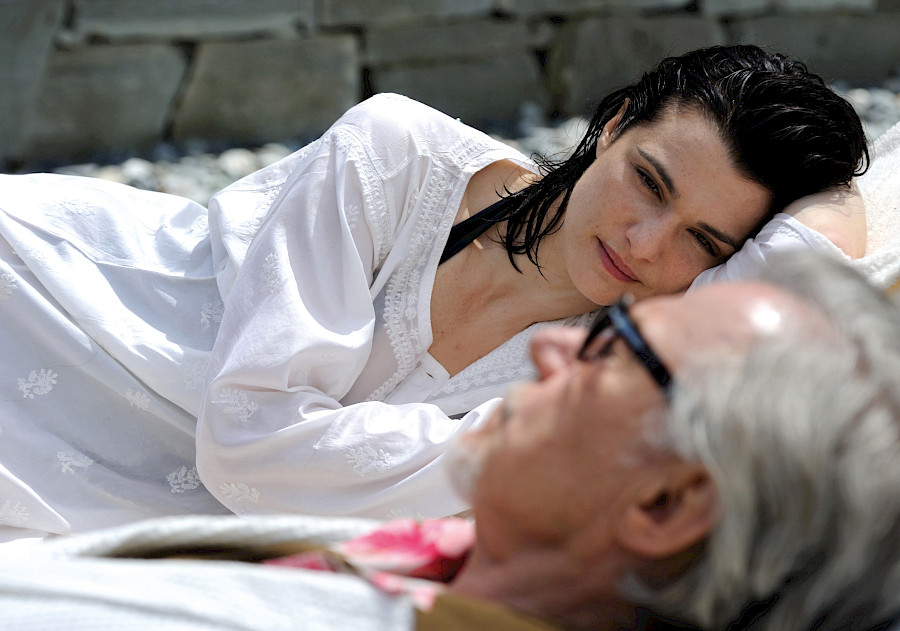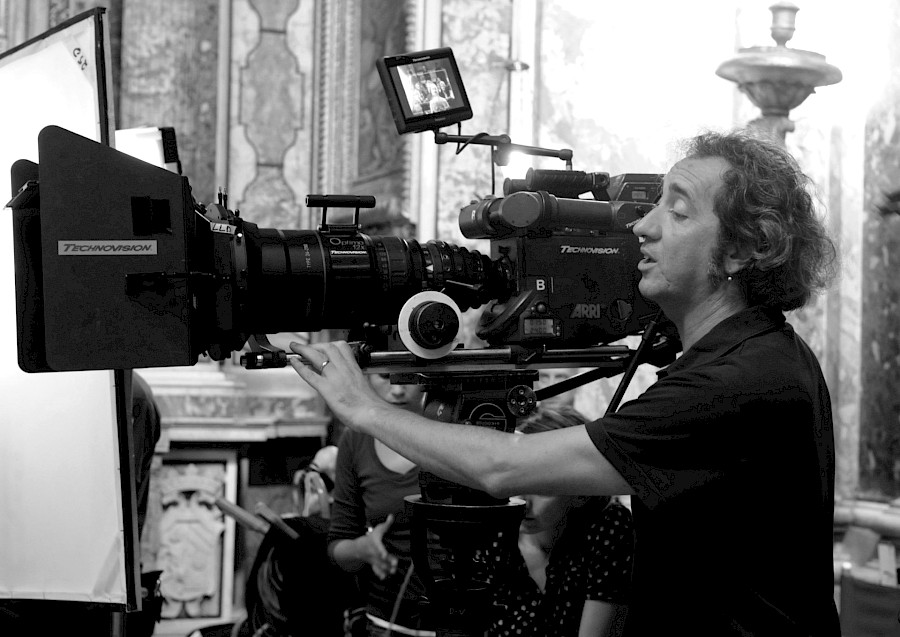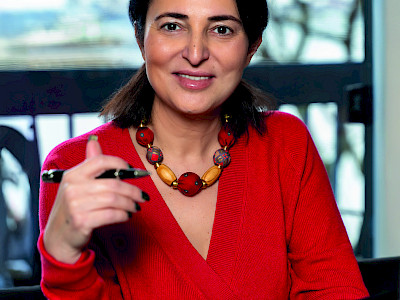
Among the eternal questions hovering over the history of humanity, the question of beauty also attracts attention. Where is this beauty located? And is charm a warm breeze after the storm, derived from the admira- tion of beauty? Perhaps this would be enough if there were only one person on the planet, for they would spend their entire life defining the subjective perception of beauty. Yet, there are many of us, each en- dowed with the talent of observation, and it turns out that the basic func- tion of an observer is embedded in every person on Earth. Therefore, it won't be possible to lull the reader with brevity – there is no time for that. Diving too deep is also impractical, as there wouldn't be enough oxygen for the return journey. However, it can be shortened through “Youth” (2015), a film by the talented Italian director Paolo Sorrentino.
It's not clear how to approach this painting, filled with comparisons and reflections on loss, acquisitions, life lived, and what might lie ahead. Sorrentino plants the seed of conflict in the viewer, watering it boldly with landscapes of an Alpine resort where characters face death, or rather, stand with their backs to it. If a bus filled with memories rushes toward you, blocking the path to the future, you turn your back and try to run until you realise there's nowhere to go because you can't escape the present – the fruit of the past hanging at the top of the tree you've climbed all your life to taste. It's the inexplicable charm of the fruit at the top that pulls a person, like a
moth to a flame. So, what does a person gain in such a situation? Undoubtedly, wisdom. It frees you from running away and suggests observing without expectations. Despite this path to understanding the beauty of youth through old age, Mick Boyle's determination has not diminished. On the contrary, this path motivated him toward "Life's Last Day".

"It doesn't make a difference! Men, artists, animals... plants! We're all just extras." – Mick Boyle
Is there a difference between a brilliant creator and someone lacking creativity? Mick believes that the process of life is indifferent, whether a person is intelligent, a creator, or a master manipulator of reality. Ultimately, everyone finds themselves at a starting point, and their experiences are not noticeable against the backdrop of massive natural processes, which people hardly realise. Of course, something led a director like Mick Boyle to such a conclusion, and his friend, the conductor Fred Ballinger, played an important role in this. Fred reflects
on his past, recalling how he meticulously approached instilling certain memories in his daughter, hoping that she wouldn't forget them. However, he faced the inevitability that she would forget, a consequence of youthful beauty. It is here that the freedom, which is the charm of youth, is revealed. Something that should not have been significant replaces what should have been considered significant after years. For Mick, learning to ride a bike was not pivotal because he would never forget how, but because he fell afterward. These memories are actually a conscious metaphor, hiding a different truth that Fred does not know about. The manifestation of Mick's cinematic upbringing is not in the picture, as is typical for a director, but in words, as is typical for a writer.
"The only thing I understand is music. Do you know why? Because to understand it, you don't need words or experience." – Fred Ballinger
Michael Caine was specifically chosen to wear glasses with dark frames to accentuate his grey hair. Sorrentino decided to paint a picture of a successful old man who, unlike Mick, does not try to leave behind an artistic legacy. He is a true old man, devoid of regrets about his life yet troubled by the absence of genuine love for it. This conductor is indifferent to the Queen of England's desire to hear "Simple Songs" on the prince's birthday. He easily and insistently refuses to perform because the one for whom these songs were composed for someone who no longer sings, thus their essence lives solely through her voice. Despite his deep attachment to emotions, Fred seems to try not to give them significance. Of course, this is a lie. It seems to be a resentment against himself, which Mick is destined to heal. Sorrentino portrays life's complexity and visual beauty, the final touch on the canvas of renewal. Fred doubts levitation, but Sorrentino not only believes in it – he demonstrates how disbelief can be shattered by life. He suggests that people fear touch not because it hides intimate pleasure, but because it should inspire a longing for connection. Paolo reflects on more than just youth clinging to the walls of inevitable old age, even as old age brings a wind that carries away memories. He contemplates the viewer, who unwittingly immerses in life's beauty amidst its cruelty and mercy. In a world where offence can devalue emotions and pain can make us focus entirely on the future, ignoring the past, where sincere love can uplift or destroy, and where a person has only the illusion of an unbreakable perspective, youth becomes the most enchanting shore of life, gently washed by the waves of impending old age. Sorrentino paid special attention to the female characters in the film. It is impossible to imagine the movie without Miss Universe (Mãdãlina Ghenea), Brenda Morel (Jane Fonda), the young masseuse (Luna Mijović), and Lena Ballinger (Rachel Weisz). Miss Universe appears for a few minutes, challenging stereotypes and addressing a profound issue with Jimmy Tree (Paul Dano) through a short dialogue, then leaves only to return in another scene and stand before the characters naked. The aesthetic of this moment must be seen to touch the author's artistic intent. Mick tells about Brenda Morel himself, in the final scene of his screenplay, titled "Life's Last Day". The masseuse often has nothing to say, but not for the viewer. And Lina has Fred's last name.
"Beauty is in the eyes of the beholder." – Oscar Wilde.



